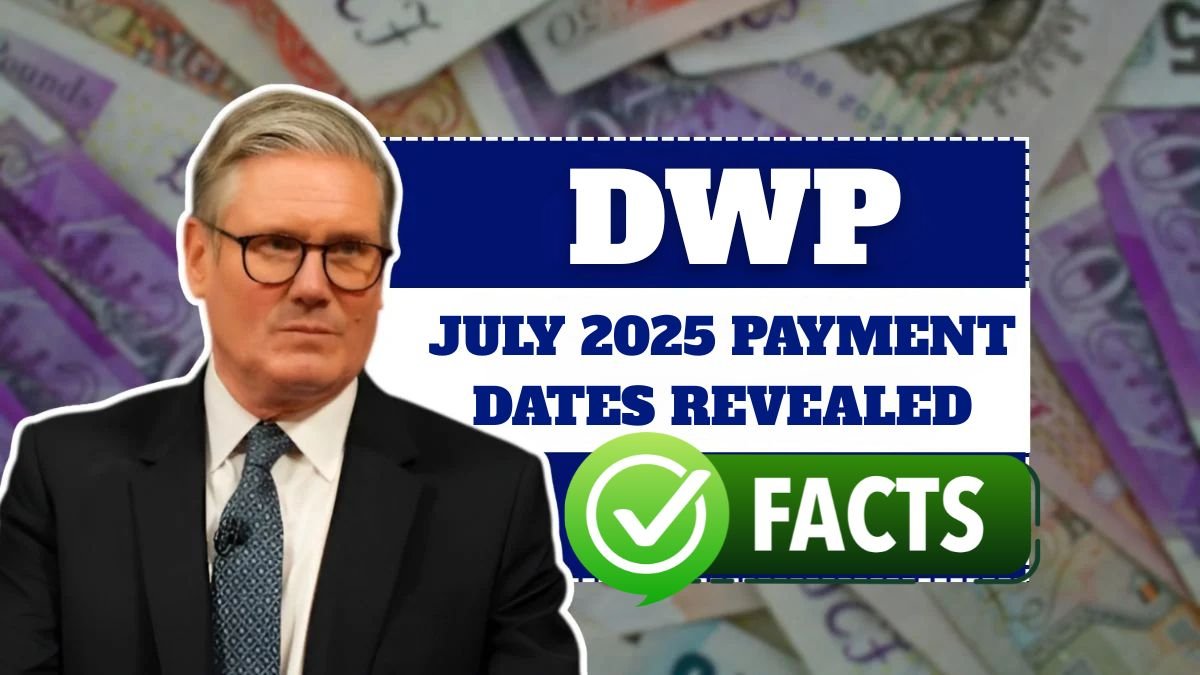DWP July 2025 Payment Dates: For millions of British citizens suffering from inflation, financial support schemes provided by the government—such as Universal Credit, State Pension, Pension Credit, and Child Benefit—are no less than a lifeline. There are about 24 million people in the United Kingdom who depend on some government benefit, whether it is unemployment, limited income, health problems or retirement. Although these schemes provide some relief, a report by the Joseph Rowntree Foundation shows that in 2022/23, 21% of British people were living below the poverty line—that is, one in five people is still struggling to meet their needs.
Amidst this dire situation, it is important to know what government benefits you can get and when and how they will be paid. In fact, another shocking fact is that every year about £23 billion of government assistance is not claimed because people are not aware of it. In such a situation, online calculators like ‘Policy in Practice‘ can prove to be very helpful, which can analyze your eligibility and tell you which schemes you are entitled to.
No change in payment date in July 2025—but be cautious ahead.
The good news is that there is no bank holiday in July 2025, which means that there will be no change in the payment dates of government benefits this month. All beneficiaries will get payment on the same date on which they usually get paid every month. But it is worth keeping in mind that if the payment date of any month in the future falls on a weekend (Saturday/Sunday) or bank holiday, then the payment is made on the working day before that.
Many times beneficiaries have the illusion that the payment is being delayed, whereas that date has simply been changed. Therefore, it is very important that you check the bank holiday calendar before your payment date so that you have accurate information and you can avoid any financial inconvenience.
Under which schemes is the payment made?
DWP, i.e., the Department for Work and Pensions, is a unit of the UK government that makes payments to beneficiaries under various social and economic support schemes. These include:
- Universal Credit—for people who have limited income or are unemployed.
- State Pension—For retired people to live.
- Pension Credit—Additional assistance to those who receive low pensions.
- Child Benefit—To help raise children.
- Disability Living Allowance (DLA)—Special allowance for people with disabilities.
- Personal Independence Payment (PIP)—For people suffering from long-term illness or disability.
- Attendance Allowance—for the elderly who need care.
- Carer’s Allowance—For people who take care of a relative.
- Employment and Support Allowance (ESA)—Those who cannot work due to health problems.
- Income Support—Those whose income is very limited.
- Jobseeker’s Allowance (JSA)—for those who are actively looking for a job.
All these schemes are paid directly into the beneficiaries’ bank accounts.
State pension—on which day?
The state pension is usually paid once every four weeks in the UK and is transferred directly into the beneficiaries’ bank account. However, the date depends on the last two digits of your National Insurance (NI) number.
The NI numbers and their corresponding payment days are given below:
- 00 to 19 – Monday
- 20 to 39 – Tuesday
- 40 to 59 – Wednesday
- 60 to 79 – Thursday
- 80 to 99 – Friday
The payment system is designed to ensure that everyone receives their benefits on time without putting too much strain on banking or technical resources.
Changes in benefits in April 2025
In view of the rising level of inflation, the government has increased all working-age benefits by 1.7% in April 2025. The increase was based on the Consumer Price Index (CPI) data for September 2024 and applies to all major benefits such as Universal Credit, PIP, DLA, Attendance Allowance, Carer’s Allowance and ESA.
Also, under the ‘Triple Lock’ policy, the state pension has been increased by 4.1%, reflecting the salary increase in 2024. This increase will benefit about £472 every year to those who are getting full state pension. This is expected to give the elderly some relief from the inflation in daily life.
What to do if payment does not come?
If for some reason the payment does not come to your account on the due date, then first of all check whether that day is a weekend or a bank holiday. If so, the payment will be transferred the next working day.
If you still don’t receive a payment, it could be because of one of the following:
- Your eligibility period has expired.
- There is an error in your application or documents.
- Payments have been delayed for technical reasons.
In this case, you should contact your local county office immediately or visit the gov.uk website to get information.
Conclusion: Information is your greatest strength.
With millions of people facing financial challenges today, the government’s benefit schemes can be a great support—provided you have the right information and know how to take advantage of them. If you’re already receiving benefits, keep your documents up to date and keep an eye on payment dates. And if you haven’t made a claim yet, don’t delay—know your rights and use them.
FAQs
Q. When will I receive my benefit payments in July 2025?
A. There are no bank holidays in July, so you will receive your payment on your regular scheduled date.
Q. What day will I get my State Pension?
A. Your State Pension payment day depends on the last two digits of your National Insurance number—ranging from Monday to Friday.
Q. What benefits are affected by weekends and holidays?
A. Payments like Universal Credit, State Pension, Child Benefit, PIP, and more can be paid earlier if your due date falls on a weekend or holiday.
Q. Was there a benefits increase in 2025?
A. Yes, working-age benefits increased by 1.7% and the State Pension rose by 4.1% in April 2025.
Q. What should I do if I don’t receive my payment on time?
A. Check if the date falls on a weekend or holiday; otherwise, contact your local benefits office or visit gov.uk for help.


